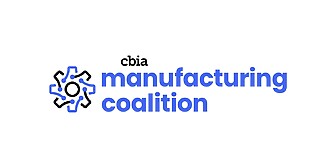Team Hawk: Sikorsky Highlights Supply Chain Relationships
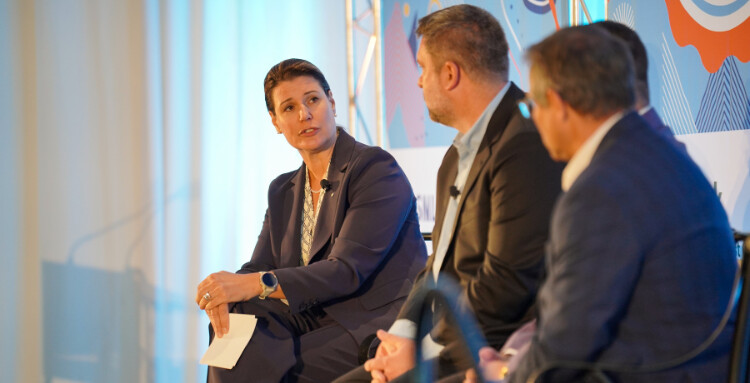
There was no shortage of pride on display at the Oct. 2 Made in Connecticut: 2025 Manufacturing Summit.
A panel of manufacturing leaders shared their perspectives as members of Team Hawk—key suppliers for Stratford-based Sikorsky Aircraft.
“When you walk down the assembly line at Sikorsky and you see your product on that bird, you just can’t help but feel proud that you’re a part of it,” said Mike Scotto, vice president of business development at Alpha Q.
“It’s humbling,” added HABCO Industries president and CEO Brian Montanari.
“It’s kind of neat for us to be a very small company located in Connecticut, and you can look up at the sky and very rarely ever see any aircraft—fixed wing or rotary, commercial or military—that we don’t touch in some manner.
“It’s very exciting.”
Timely Conversations
The conversation between Scotto, Montanari, Triumph Group Operating Company president Justin Wolfanger, and Sikorsky vice president of operations Audrey Brady proved to be uniquely timely.
Last month, the U.S. Navy announced a $10.8 billion, five-year contract with Sikorsky for almost 100 CH-53K King Stallion heavy-lift helicopters for the Marine Corps.
The contract will ensure thousands of production roles at Sikorsky and its nationwide supply chain, including more than 40 companies in Connecticut.
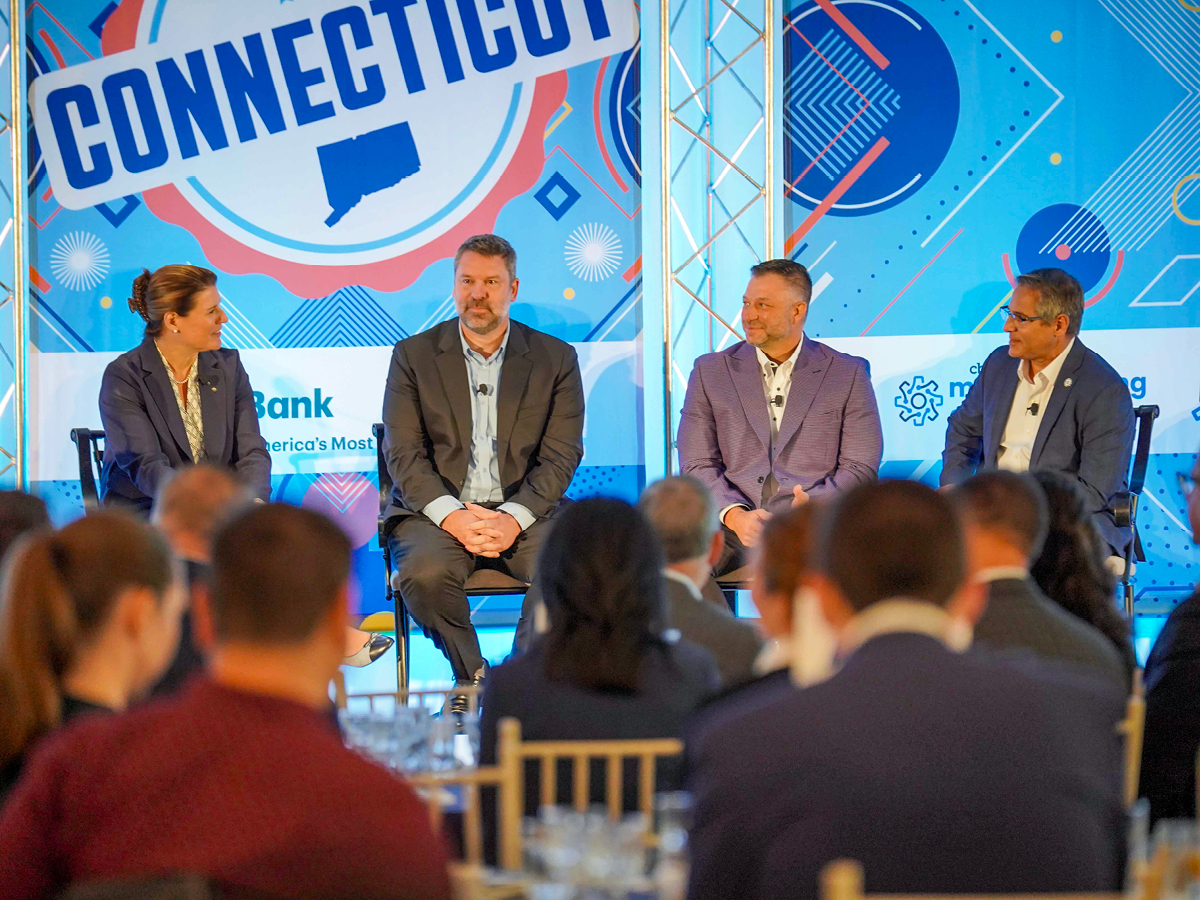
Sikorsky is also committed to sustaining and modernizing the iconic Black Hawk helicopter for the next 50 years.
The company has produced over 5,000 Black Hawks and Hawk variants, which means a wealth of long-term military and commercial service and maintenance contracts.
And in August, the Pentagon awarded Sikorsky a new contract to modernize the Black Hawk, supporting the Army’s near-term priority to enhance the aircraft’s mission capabilities.
“The Black Hawk is going to be around for a very, very long time,” Brady said. “The Black Hawk of today will not be the Black Hawk of tomorrow.”
Team Hawk
Each Sikorsky helicopter—including the King Stallion and the Black Hawk—features tens of thousands of precision crafted parts.
“40,000 parts,” said Wolfanger. “One part means that aircraft doesn’t fly.”
Brady said that because each of those parts are so important to the overall aircraft, it’s “absolutely critical to have a voice from all of our suppliers.”
Sikorsky created Team Hawk last year to build collaboration with all its stakeholders, including the U.S. Army, government agencies, and suppliers.
“It’s really the opportunity for us to be able to understand some of the technologies that you are developing, to collaborate together,” she said.
A big part of that is understanding not just the new technologies, but also the challenges that suppliers are navigating.
One of the biggest challenges is Connecticut’s labor shortage. CBIA’s 2025 Manufacturing Report shows that 82% of manufacturers cite difficulty finding and retaining workers.
The largest share of those employers (30%) also say that the lack of skilled job applicants is the top factor hampering growth, with the sector having an estimated 7,000 open positions.
Connecticut manufacturing employment fell by 1,800 jobs in the 12 months through August 2025, leaving the sector with only 39% of pandemic-era losses recovered.
Workforce Development
Filling those jobs, especially for smaller manufacturers, can be a challenge.
“For us, the size business we are, with the big Tier One companies around the corner, we can’t compete on compensation—it’s not something we can do,” said Montanari.
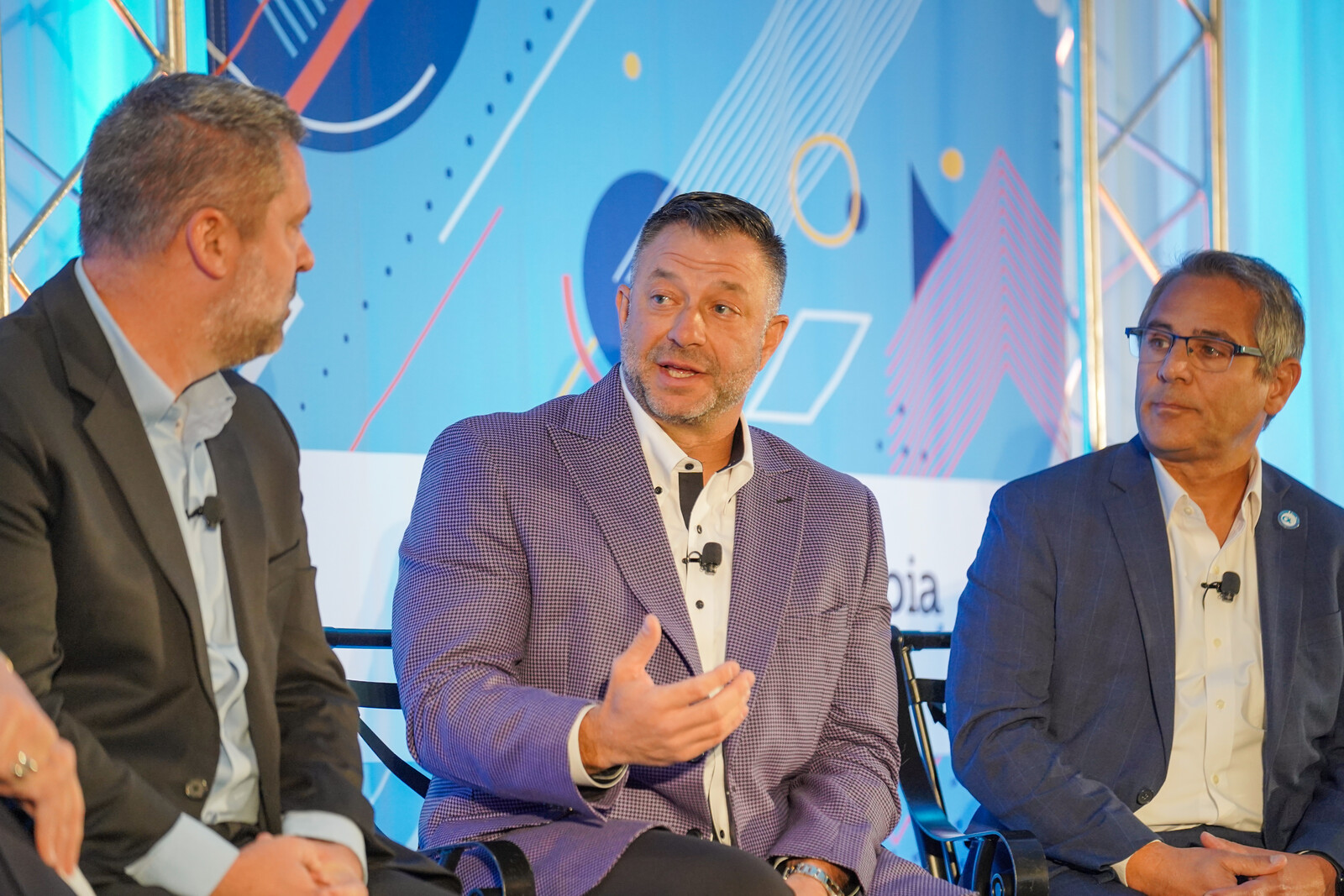
“We’re trying to focus on how do we grow the business without having to scale the personnel at the same rate, because it’s just a zero sum game.”
“And so—what we focus a lot on—is what we call 100% cross training.There is not a single person in our building that knows only one discipline.”
Montanari and the rest of the panel also highlighted the work they do with their local trade schools and community colleges to build the next generation of their workforce.
Next Generation
Brady said Sikorsky worked with trade unions and local schools to develop and maintain an apprenticeship program.
The program gives high school students hands-on training on Sikorsky’s shop floor with potential employment opportunities.
“It’s very exciting for us to have that apprenticeship program and the ability to be able to develop that next generation,” she said.

Wolfanger said while Triumph has managed an apprenticeship program for a number of years, the West Hartford company has also increased its focus on internships.
And a key is to make sure those interns have meaningful experiences.
“Our supervisors will get in trouble for not having meaningful work for their team,” he said.
“Meaningful work translates into them wanting to stay and learn and thrive.”
Embracing New Ideas
Scotto agreed, adding that Alpha Q has its senior machinists and assemblers become mentors for interns and younger employees.
At the same time, Scotto said the Colchester company is trying to cultivate the next generation to understand that manufacturing is cool, sophisticated, and high-tech.
“You walk into our facility—it’s climate-controlled, brightly lit, with white floors, and very sophisticated equipment,” he said.
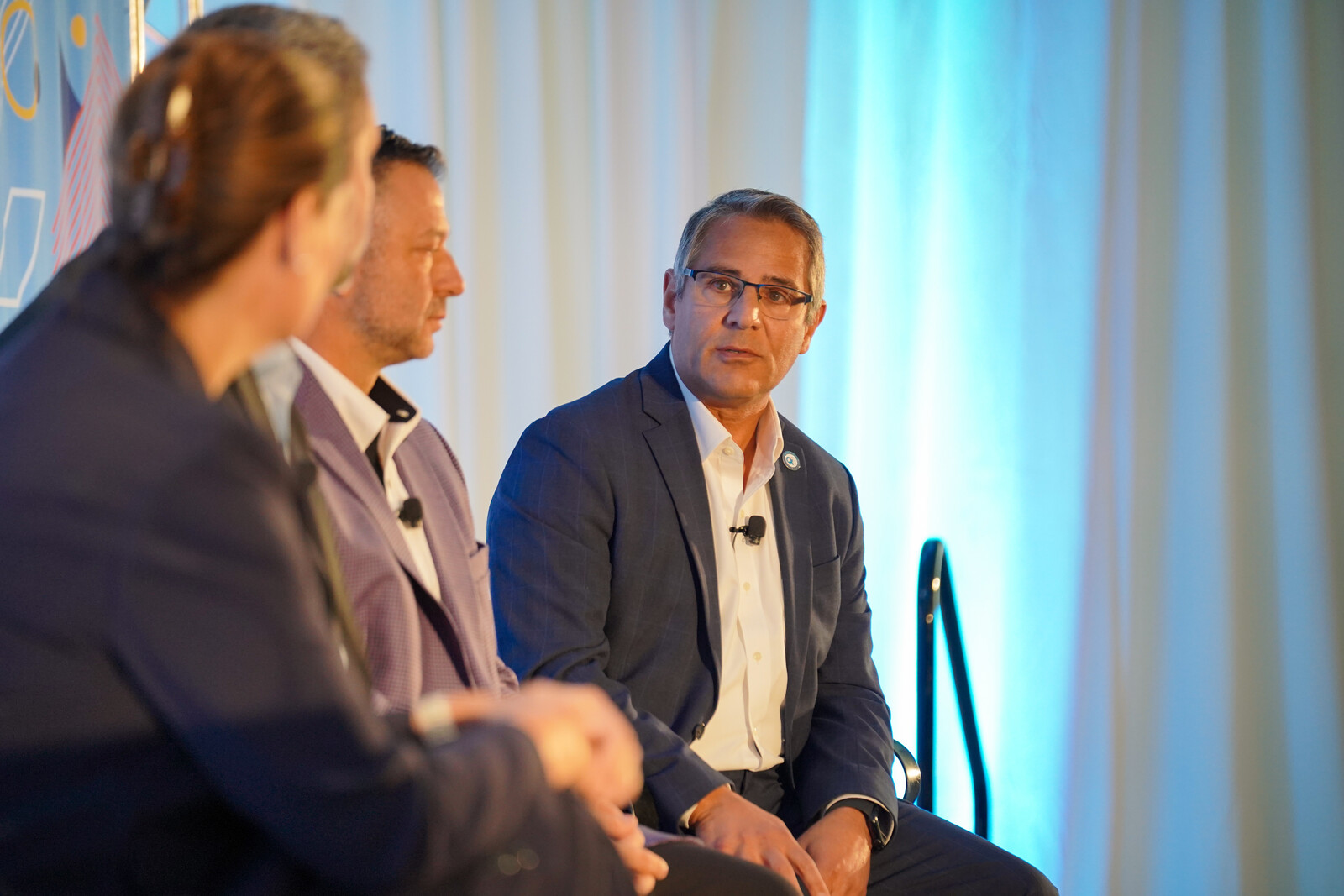
“And these young kids can actually work this stuff. They actually make it happen.”
He said they often are the people who come to them with innovative ideas and ways of doing something.
“We’re bringing up that younger generation to really embrace their mind and to think outside the box,” Scotto said.
Navigating Challenges
Over the past five years, Sikorsky’s supply chain has navigated its fair share of twists and turns, from the COVID-19 pandemic to supply chain disruptions, inflation concerns, tariffs, and increased costs and lead-times.
“It’s not uncommon to see 70, 80, 90-week lead times to get a piece of hardware,” said Scotto.
“I feel like we’re coming out of that recovery.”
Triumph Group’s Justin Wolfanger
“We’re trying to work very closely with our customer to understand what the demand is.”
“I feel like we’re coming out of that recovery,” said Wolfanger.
“What I can do now—I can get my inventory flowing, steady my demand to my supply chain—these aircraft are not going away.”
Staying Competitive
Montanari highlighted some of the challenges that remain for manufacturers in Connecticut.
“It’s not the easiest state to run a business or own a business,” he said.
“You’ve got headwinds from material costs, whether its tariff-related or just material costs, you’ve got legislative headwinds for running a business—it’s very tough to plan.”
“We have to invest in technology. We have to invest in partnerships.”
HABCO’s Brian Montanari
Montanari said that to stay competitive in the current economic climate, Glastonbury-based HABCO is turning to technology.
“We have to invest in technology,” he said. “We have to invest in partnerships.
“We continue to go along that path because we have to innovate.”
Bigger Mission
Despite those challenges, Team Hawk members know the work they do is part of a bigger mission.
“For me, it’s personal,” said Wolfanger whose son serves in the U.S. Air Force.
“We’re in the business of saving lives.”
Sikorsky’s Audrey Brady
“There’s a lot of pride walking in the factory, seeing that flag, and knowing that we’re supporting an industry that’s supporting the freedom of the world.”
“When I tell people what I do for a living—and I make sure all of our employees do the same—I tell them we’re in the business of saving lives,” said Brady.
RELATED
EXPLORE BY CATEGORY
Stay Connected with CBIA News Digests
The latest news and information delivered directly to your inbox.
